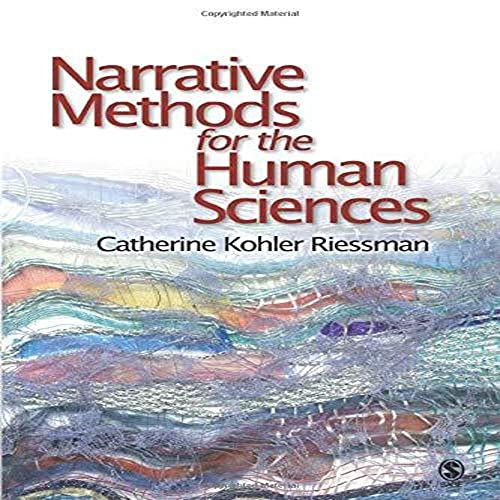Narrative Methods for the Human Sciences
Catherine Kohler Riessman is Research Professor in the Department of Sociology at Boston College, and an Emerita Professor at Boston University. She serves as a Visiting Fellow in the Centre for Narrative Research, University of East London. She earned a Ph.D. in Sociomedical Science from Columbia University. Riessman has authored four books and numerous articles and book chapters in medical sociology and qualitative methodologies. ... Read more Read less
Riessman updates, expands, and to some degree reconceptualizes her 1993 SAGE book, Narrative Analysis, which has probably been the most cited methodological source for narrative reserach. The new version deserves even greater success than its predecessor....The greatest virtue of Riessman's book, for my taste, is her refusal to reduce method to procedure' - Canadian Journal of Sociology Catherine Kohler Riessman provides a lively overview of qualitative research based on interpreting stories. Designed to improve research practice, it provides detailed discussions of four analytic methods: thematic analysis, structural analysis, dialogic/performance analysis, and visual narrative analysis. Broad in scope, Narrative Methods for the Human Sciences offers concrete guidance for students and established scholars wanting to join the "narrative turn" in social research. Key Features Offers guidance for interviewing and transcription: The author discusses the move from spoken language to written transcript. In the process, she encourages students to be mindful of the texts they construct from dialogues in an interview study. Includes visual approaches to data gathering: Riessman takes narrative research beyond its historic reliance on word-based materials. She discusses exemplary research that integrates images-both those made during the research process and others found in archives. Presents arguments about validation in case-based research: The book presents several ways to think about credibility in narrative studies, contextualizing validity in relation to epistemology and theoretical orientation of a study. Intended Audience This text is designed as a supplement to qualitative research courses taught in graduate departments across the social and behavioral sciences, and as a core book in narrative research courses. It is also useful for academics wanting to learn more about narrative methods. ... Read more Read less











